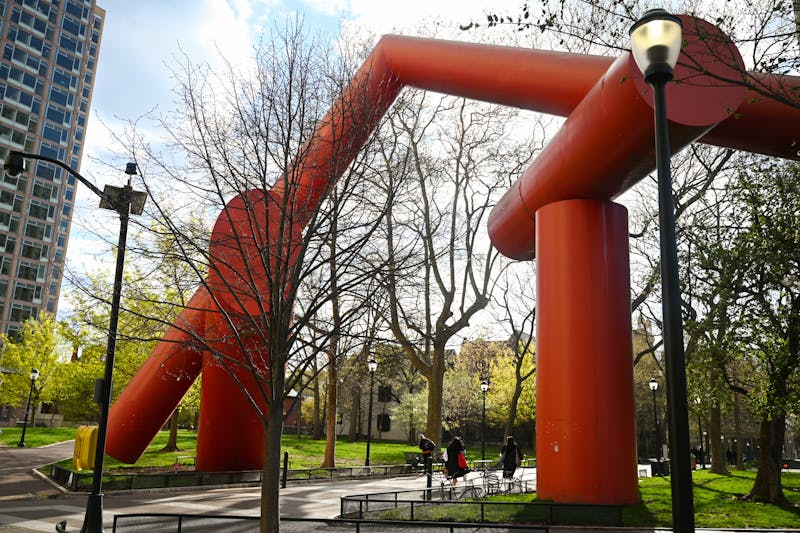More than two months after his mysterious disappearance and death, Harvard Professor Don Wiley's death was ruled accidental by the Memphis Medical Examiner's office and not a suicide as authorities had previously believed.
Wiley, a well-known professor of biophysics and biochemistry at Harvard University for almost 30 years, turned up missing during the early morning hours of Nov. 16.
His car was left abandoned -- with keys in the ignition and a full tank of gas -- on the Hernando de Soto Bridge over the Mississippi River just outside of Memphis, Tenn.
Authorities originally ruled that Wiley had jumped off the bridge and committed suicide, but now say that he fell from the bridge accidentally.
Though it is still unclear what he was doing on the bridge, authorities speculate that Wiley may have been in a minor car accident and had stopped on the bridge to check his rental car for damage.
"He was driving and must have struck something," Latanya Able, an officer with the Memphis Police homicide squad said. "There were yellow scrape marks on the four-door white sedan."
Able added that the car, a Mitsubishi Galant, was missing one of its hubcaps, further suggesting that Wiley may have been in a small car accident.
Wiley was last seen on Nov. 15 at the Peabody Hotel located in downtown Memphis, where he had attended the annual meeting of the St. Jude Children's Research Hospital scientific advisory board. He left the meeting at around 11:30 p.m. to go to his father's house in Memphis.
The abandoned car was reported to police at 3:45 a.m. the next morning. The Hernando de Soto Bridge is located in the opposite direction of Wiley's father's house.
Wiley's body was found in a tree 320 miles down the Mississippi River in Vidalia, La., on Dec. 20. The Memphis medical examiner used Wiley's dental records to officially identify him on Dec. 22.
The Memphis police said that there was probably no struggle before Wiley's death.
"There was no evidence that there was anyone else involved in the death," Able said.
The medical examiner's report of investigation said that Wiley sustained massive chest damage, suggesting that he hit one of the bridge's support beams while falling.
In the past, people attempting to commit suicide by jumping off the Hernando de Soto Bridge have cleared the beams, further indicating that Wiley may have accidentally fallen off the bridge.
The medical examiner's report, which was released last Tuesday, does not mention an exact cause of death, only stating that Wiley probably died from a "fall."
Some have questioned the possibility of a man falling over a 43-inch guardrail, but for Wiley, who was well over 6 feet tall, the guardrail would only have been as tall as his waist.
While police had initially ruled Wiley's death a suicide, family members strongly believed that Wiley did not take his own life and urged police to continue their investigation into the cause of his death.
The medical examiner's conclusion closes the police investigation into the death.
"We are complete with our investigation unless new facts come up that would cause us to reopen the case," Able said.
Wiley, who was the Loeb Professor of Biochemistry and Biophysics at Harvard, was a well-respected researcher who made many contributions to his field.
Along with Harvard Professor of Biochemistry Jack Strominger, Wiley won the Lasker Award in 1995 and the Japan Prize in 1999 for his work on understanding the human immune system.
"He is a beacon of scientific integrity and is very precise in his approach to scientific issues," Strominger said in a statement concerning Wiley's disappearance released last November.
Wiley's work with the immune system and virulent germs like the Ebola virus had led some to speculate that he had been kidnapped in the wake of the recent Anthrax scare.
Strominger denied any possible connection between Wiley's work and a possible kidnapping in his statement.
"Our department doesn't have facilities in which dangerous viruses could be produced," he said. "I cannot think of any possible link between Don's work or expertise and bioterrorism."
Harvard President Lawrence Summers expressed his thoughts in a statement released last week.
"All of us are profoundly saddened by the news of Don Wiley's death," Summers said. "He was a brilliant biologist and a greatly admired member of this community."
The Daily Pennsylvanian is an independent, student-run newspaper. Please consider making a donation to support the coverage that shapes the University. Your generosity ensures a future of strong journalism at Penn.
DonatePlease note All comments are eligible for publication in The Daily Pennsylvanian.








